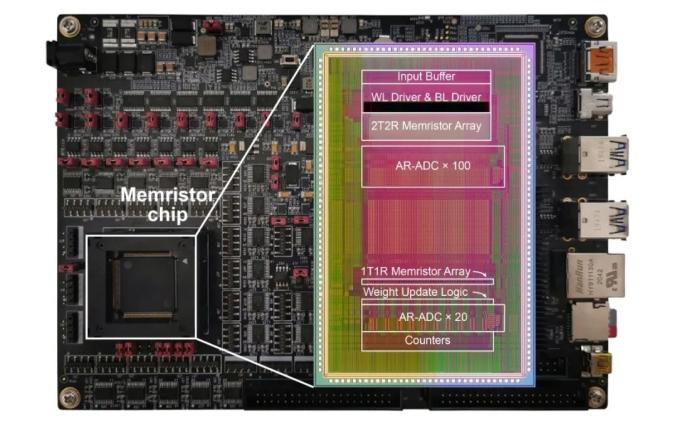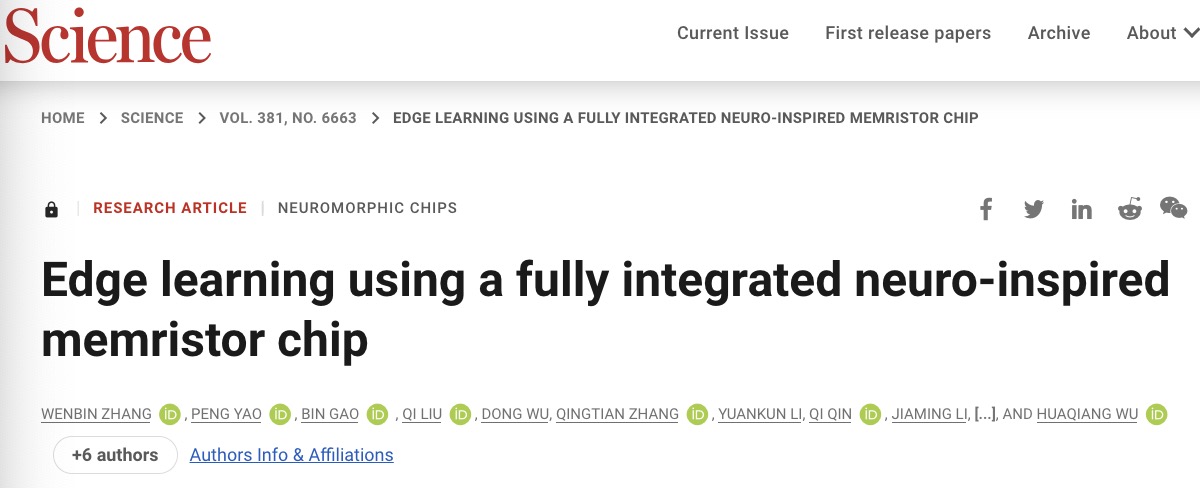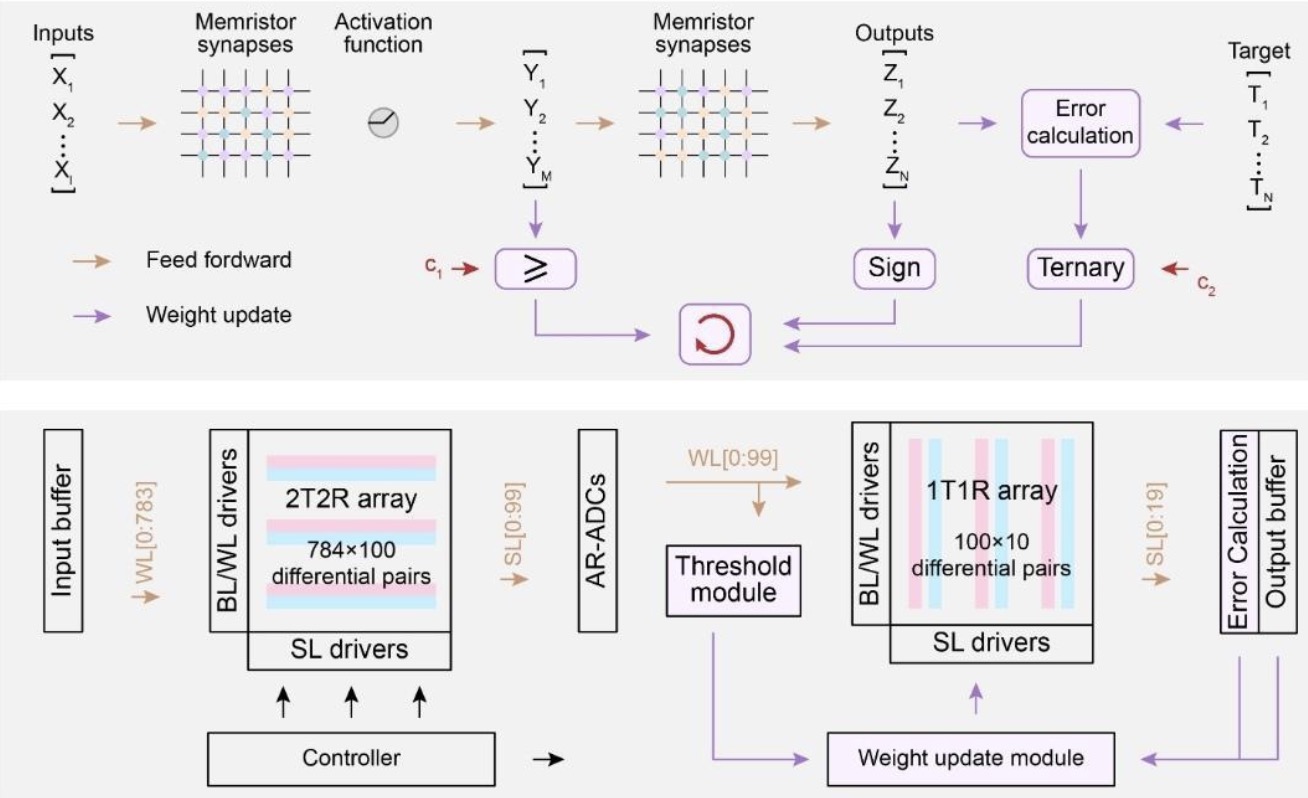
An illustration shows the system-integrated memristor computing-in-memory chip and its test system. /Tsinghua University
An illustration shows the system-integrated memristor computing-in-memory chip and its test system. /Tsinghua University
China made a major breakthrough in developing the world's first fully system-integrated memristor computing-in-memory chip, which supports efficient on-chip learning and is also energy efficient.
The advanced chip is developed by a team led by professor Wu Huaqiang and associate professor Gao Bin from the School of Integrated Circuits at Tsinghua University.
It has a cutting-edge advantage as it consumes energy that is only three percent of an application-specific integrated circuit (ASIC) system for on-chip learning, which will greatly meet the demand for increased computing efficiency in the era of artificial intelligence (AI), said the research team.
The chip, though still in the laboratory phase, is expected to promote development in AI, autonomous driving, wearable devices and other high-tech fields.
The study was published in the journal Science.

A screenshot of part of the study published in the journal Science.
A screenshot of part of the study published in the journal Science.
Advanced memristors chip
It took the Tsinghua research team about 11 years to complete the job starting from the research on using memristors for storage application.
Memristor is the fourth basic circuit component after resistors, capacitors, and inductors. It is able to "memorize" the passing charge after the power is turned off, and can be used as a new type of nano-electronic synaptic device.
Current international researches of such study are mainly focusing on the demonstration of learning functions at the memristor array level.
However, the realization of a fully system-integrated memristor chip, which supports efficient on-chip learning, still faces great challenges and has not yet been achieved yet.
The main reason is that the high-precision weight update method required by the traditional backpropagation training algorithm has poor adaptability to the actual characteristics of the memristor.

An illustration shows general algorithm and framework for efficient on-chip learning based on memristor storage and computing integration. /Tsinghua University
An illustration shows general algorithm and framework for efficient on-chip learning based on memristor storage and computing integration. /Tsinghua University
Facing the major challenge of traditional storage and computing separation architecture that restricts the improvement of computing power, Wu and Gao creatively proposed a new algorithm and framework called STELLAR which adapts memristor storage and computing integration to achieve efficient on-chip learning.
STELLAR effectively realized large-scale computing, monolithic three-dimensional integration of large-scale analog memristor arrays and complementary metal-oxide-semiconductor (CMOS).
Through collaborative innovation in the entire process of algorithm, architecture, and integration methods, the world's first fully system-integrated memristor storage and computing integrated chip that supports efficient on-chip learning was then developed.
The chip contains all the circuit modules necessary to support complete on-chip learning, and successfully completes a variety of on-chip incremental learning function verification.
Such functions include image classification, speech recognition and control task, which demonstrate high adaptability, high energy efficiency, high versatility, and high accuracy, effectively strengthening the learning and adaptation ability of intelligent devices in practical application scenarios.